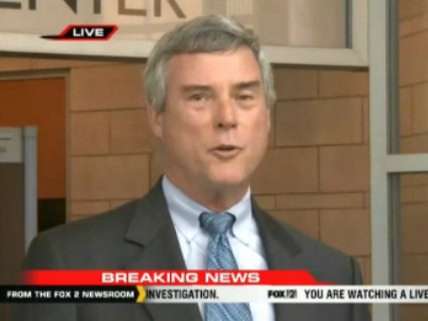Darren Wilson Got a Private Trial Run by Friendly Prosecutors

As I noted yesterday, the likelihood that Darren Wilson would have been acquitted if he had faced a homicide charge in connection with the death of Michael Brown does not mean he should not have been indicted. As you go through the evidence that was presented to the grand jury, two things are clear: There is plenty of room for reasonable doubt as to whether Wilson broke the law when he shot and killed Brown, and there is considerable evidence that he did—surely enough to supply probable cause, the standard for charging someone with a crime. St. Louis County Prosecuting Attorney Robert McCulloch managed to obscure the latter point by staging what amounted to a trial behind closed doors—a trial without a judge or an adversarial process. Assuming the jurors were acting in good faith (and there is no reason to think they weren't), the only explanation for their decision is that they lost sight of the task at hand and considered the evidence as if they were being asked to convict Wilson rather than approve charges that would have led to a real trial.
It is not hard to see how the grand jurors could have made that mistake. McCulloch said he would present all of the evidence collected so far—everything a trial jury would see and hear. The jurors convened on 23 days, hearing testimony that takes up nearly 5,000 pages of transcript, not including the various recorded interviews played for them. Instead of making the case for an indictment, as they ordinarily would do, the prosecutors running the show often seemed to be reinforcing Wilson's defense, as when they suggested that marijuana-induced psychosis might account for the ferocious attack that Wilson says he suffered at Brown's hands and for the heedless charge that Wilson says forced him to shoot Brown over and over again.
McCulloch clearly thought an elaborate grand jury process, coupled with public release of all the evidence presented to the jurors, would help keep the peace and mollify critics who feared that Wilson would get away with murder. But a real trial, even one ending in acquittal, would have been much more effective at achieving those goals. A public airing of the evidence, with ample opportunity for advocates on both sides to present and probe it, is what Brown's family has been demanding all along. McCulloch took extraordinary steps to deny them that trial, thereby reinforcing the impression that the legal system is rigged against young black men and in favor of the white cops who shoot them.


Show Comments (265)